The draft law amending and supplementing a number of articles of the Law on Exit and Entry of Vietnamese Citizens and the Law on Entry, Exit, Transit and Residence of Foreigners in Vietnam allows the extension of the duration of electronic visas (e-visas) from 30 to 90 days. The Government decides on the list of countries and territories whose citizens are granted e-visas; the list of international border gates that allow foreigners to enter and exit with e-visas. After being granted an e-visa, within 90 days, foreigners can enter and exit the country an unlimited number of times, without having to apply for a new visa.
In addition, citizens of countries unilaterally exempted from visas by Vietnam are granted temporary residence for 45 days (previously 15 days) and are considered for visa issuance and temporary residence extension according to regulations.
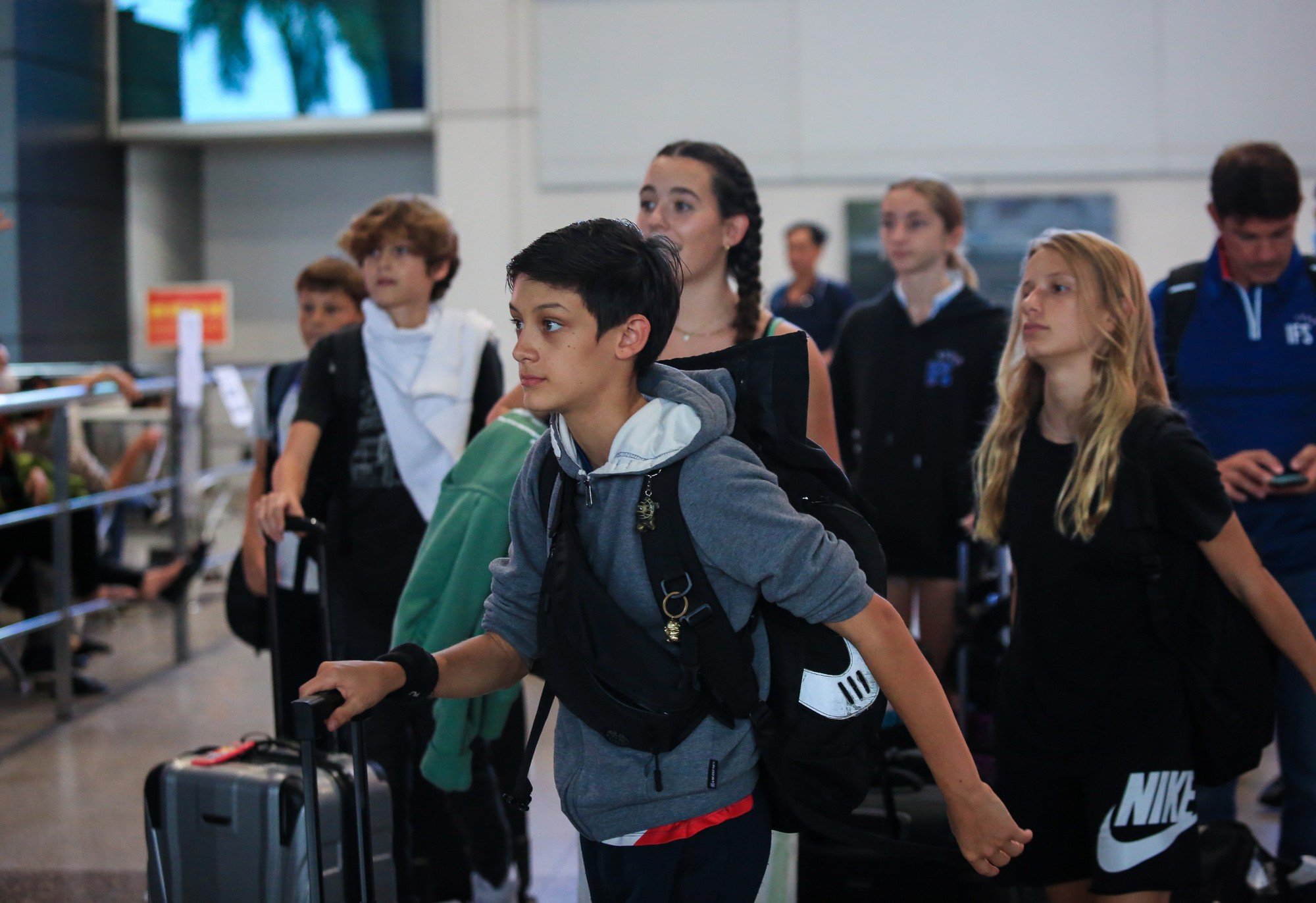
Visa has been 'opened', tourism expects to accelerate to attract international visitors
Increase the advantage of attracting "big" customers
"This is one of the policies that tourism businesses have proposed for many years, even before Covid-19, especially when Vietnam identified Vietnam's upcoming key tourist markets as high-spending markets such as the US, Australia, and Western European countries. Extending the length of stay and allowing multiple entries will solve many difficulties and problems for travel companies when they want to attract international visitors to Vietnam," said Mr. Tran The Dung, General Director of Vietluxtour Travel.
Mr. Dung analyzed: American, Australian, and Western European tourists tend to travel for very long periods, plan early, and like to travel in a series of routes in the direction of Vietnam - Laos - Cambodia or Laos - Cambodia - Vietnam. Western European tourists mostly have trips lasting 14 days. Some markets such as the Netherlands and Germany often travel for more than 20 days. When traveling for long periods and in a series of routes, they need a long stay. Previously, Vietnam unilaterally exempted visas with the aim of stimulating the Western European market, but the stay limit was not suitable to the characteristics of the market, so that was a huge disadvantage. The visa exemption policy has not yet fully exerted its effect.
In addition, Vietnam has the advantage of having convenient routes, a wide flight network, many foreign airlines with higher flight frequencies to Vietnam than Laos and Cambodia. Therefore, customers will choose to fly to Vietnam, most of them will fly round-trip from Vietnam to save costs. However, in the past, many visitors to Vietnam, then to other countries and then back had to reapply for a visa. This is very inconvenient for the target markets of travel companies. Therefore, the new regulation for multiple-entry visitors will solve this problem.
"With the extension of the visa duration to 90 days, visitors will not necessarily have to travel during the period when service prices are too high, but can flexibly adjust their schedules within 3 months. If the price in July is too high, they can travel in August or wait until September. Visitors will have more choices. In general, the new regulations will increase Vietnam's competitive advantage compared to other countries in the region. This will also help the tourism industry balance the number of visitors all year round, not being pushed all into one or two peak seasons," said Mr. Tran The Dung.
Chairman of the Board of Directors of Vietravel Corporation Nguyen Quoc Ky also assessed that limiting visa validity and limiting the length of stay prevents travel companies from diversifying and enriching their product systems. Up to now, companies have only built stick-shaped product sets, which means only visiting the highlights of the North and South, such as from Hanoi to Da Nang, Hue, Hoi An, through Quy Nhon and then back to Ho Chi Minh City, and going to the West. Such cross-Vietnam tours only last 10-15 days, monotonous, making tourists who go once not want to come back because they think they have explored enough Vietnam. Also because they are stick-shaped, like a slide tube, the penetration of tourism into the economy is not much, not creating a strong spread.
"Extending the length of stay is a prerequisite for tourism companies to transform their product models into a fishbone or antlers model, which means opening a cross-road, attracting visitors to areas with potential for tourism development. The longer visitors stay and the more they travel, the more they spend, and the more tourism and the economy benefit," Mr. Nguyen Quoc Ky emphasized.
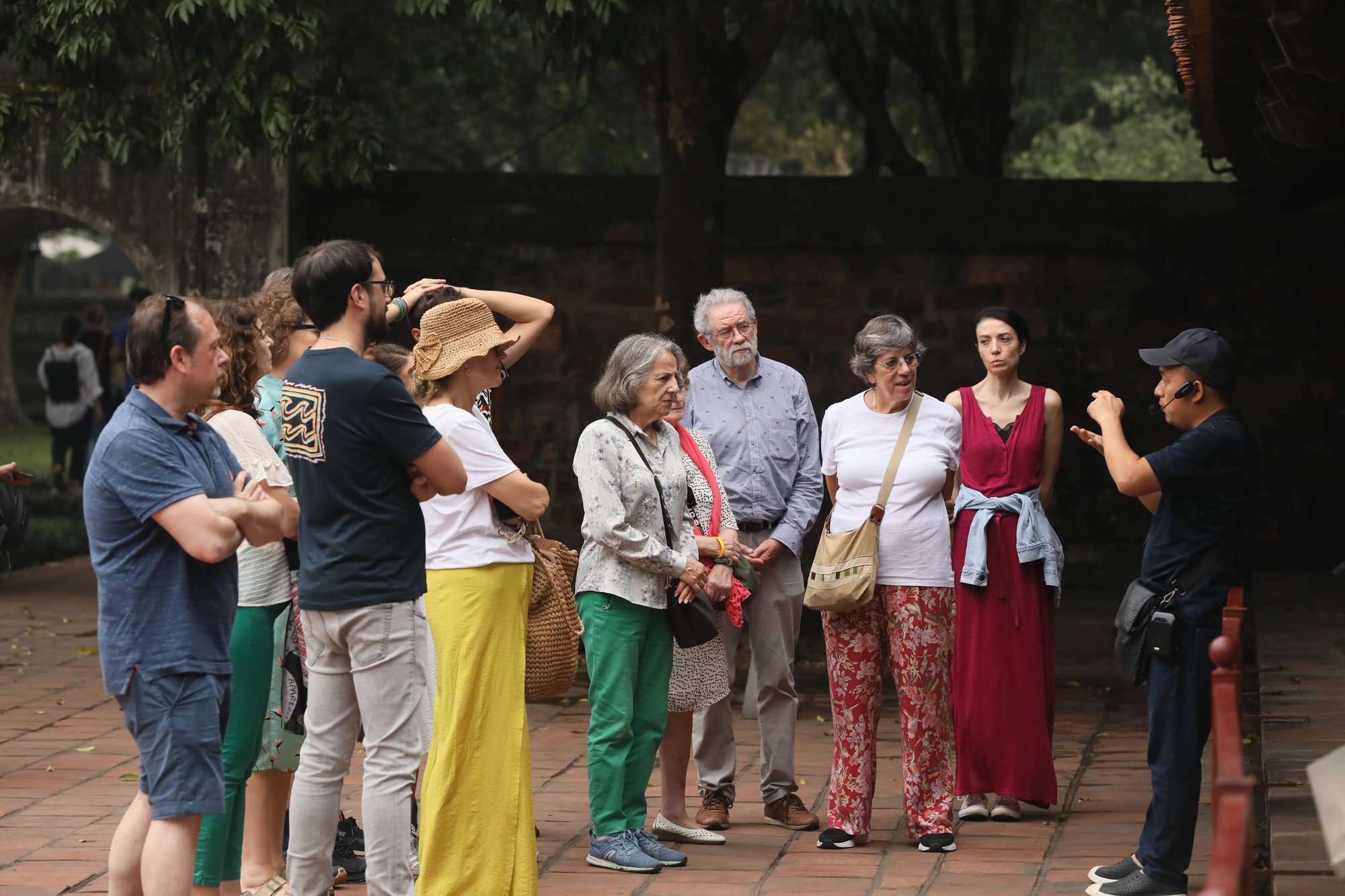
The tourism industry is confident of exceeding the target of welcoming 8 million international visitors this year.
Waiting for instructions to promote in bulk
Ready to build new product sets to welcome guests, however, travel companies are still waiting for specific and detailed instructions. The leader of Vietluxtour Travel said that the company is still unclear about which countries will be eligible for the visa extension to 90 days; which countries will be granted temporary residence of 45 days; it is unclear whether only customers applying for e-visas will be eligible for the 90-day visa or whether customers applying for visas for tours through the consulate will also be eligible for this policy; whether the list of countries with unilateral visa exemptions will continue to be expanded, and if so, which markets will be opened.
Mr. Tran The Dung said: "There must be detailed and specific instructions so that we can promote and sell products to customers. For now, we have identified the market for customers traveling for more than 14 days or more than 30 days, mostly from Europe, Australia, and the US. These markets often plan their trips very early, so if there is information about the policy from this June, the travel company will start building new, longer tour programs, contacting airlines, booking services... which will take about 3-4 months. If all goes well, it will be October-November at the earliest before the new policies really start to 'absorb'."
Meanwhile, Chairman of the Board of Directors of Vietravel Corporation Nguyen Quoc Ky is very hopeful about the "finalization" of the list of visa-exempt countries so that Vietnam's visa policy can be truly open and transparent.
According to him, this is an inevitable requirement in the issue of destination competition. Vietnam will not be able to compete with the list of 26 visa-free countries, while Malaysia and Singapore have exempted visas for 162 countries, the Philippines exempts 157 countries, Thailand exempts citizens of 64 countries... Removing visa bottlenecks will be a boost for Vietnam's tourism to accelerate from the fall-winter tourist season at the end of this year.
Source link


![[Photo] General Secretary To Lam receives French Ambassador to Vietnam Olivier Brochet](https://vstatic.vietnam.vn/vietnam/resource/IMAGE/2025/4/17/49224f0f12e84b66a73b17eb251f7278)
![[Photo] Nhan Dan Newspaper announces the project "Love Vietnam so much"](https://vstatic.vietnam.vn/vietnam/resource/IMAGE/2025/4/17/362f882012d3432783fc92fab1b3e980)
![[Photo] Promoting friendship, solidarity and cooperation between the armies and people of the two countries](https://vstatic.vietnam.vn/vietnam/resource/IMAGE/2025/4/17/0c4d087864f14092aed77252590b6bae)
![[Photo] Closing of the 4th Summit of the Partnership for Green Growth and the Global Goals](https://vstatic.vietnam.vn/vietnam/resource/IMAGE/2025/4/17/c0a0df9852c84e58be0a8b939189c85a)
![[Photo] National Assembly Chairman Tran Thanh Man meets with outstanding workers in the oil and gas industry](https://vstatic.vietnam.vn/vietnam/resource/IMAGE/2025/4/17/1d0de4026b75434ab34279624db7ee4a)

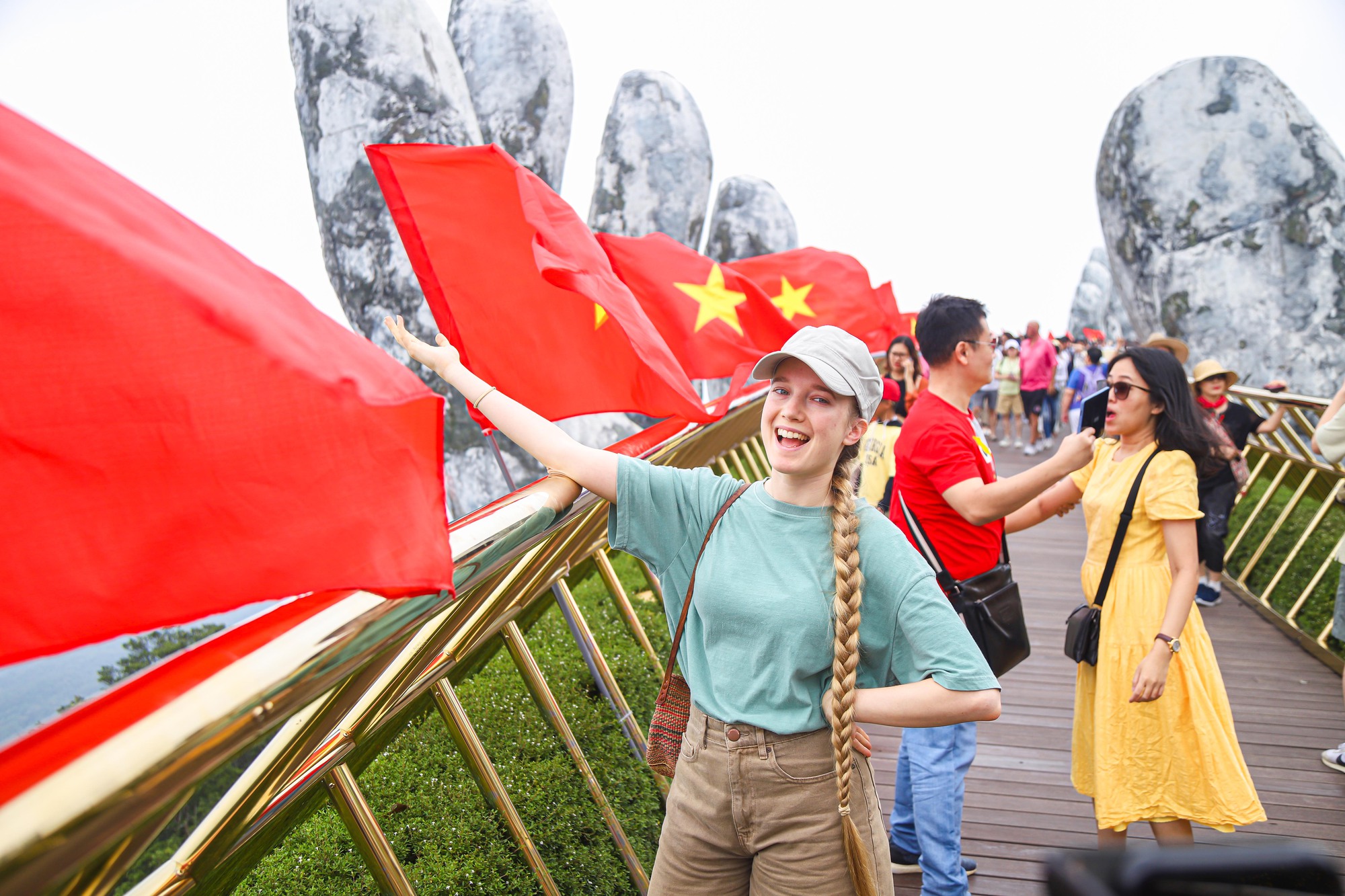

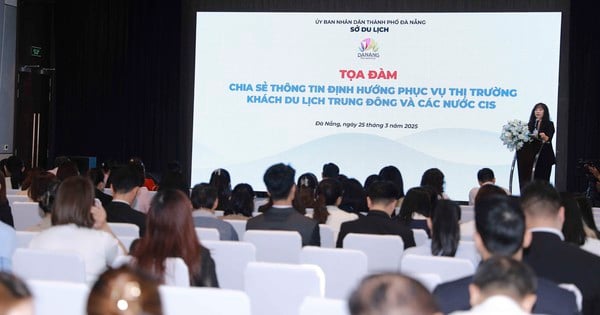

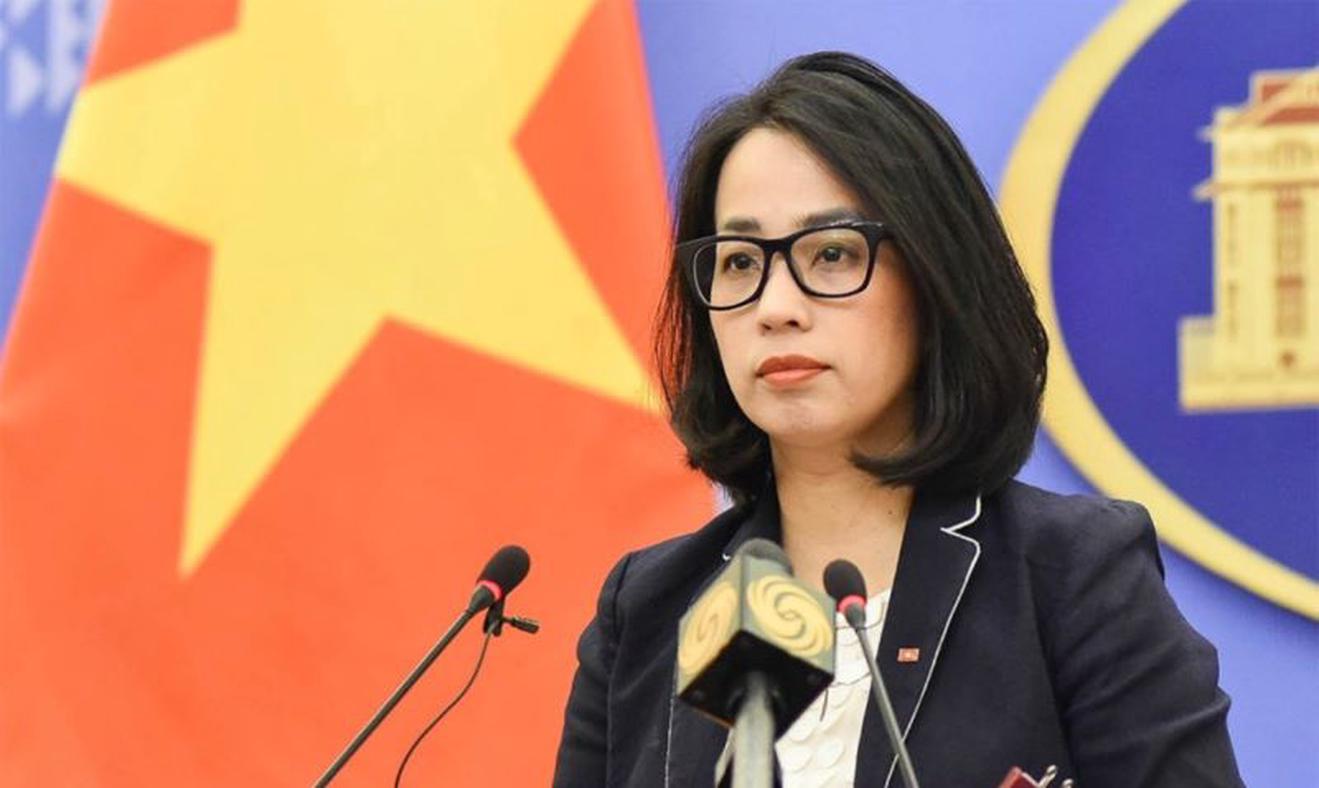
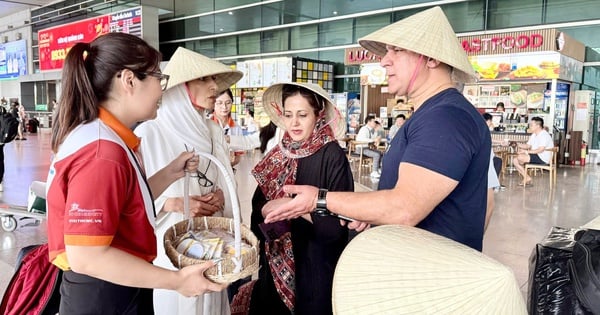





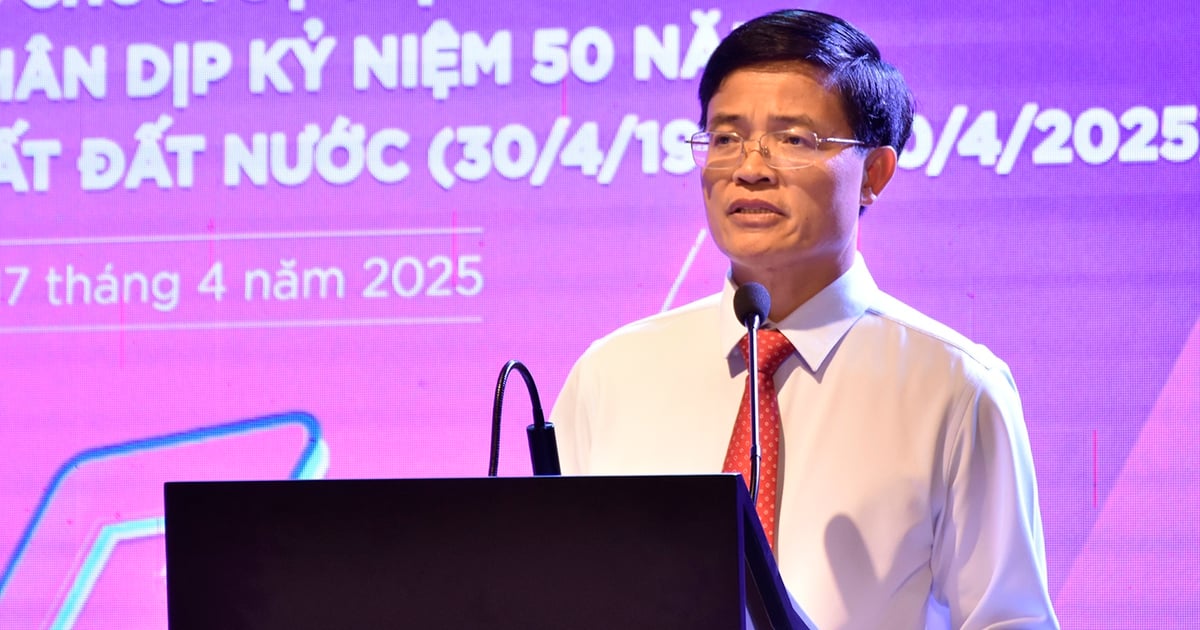

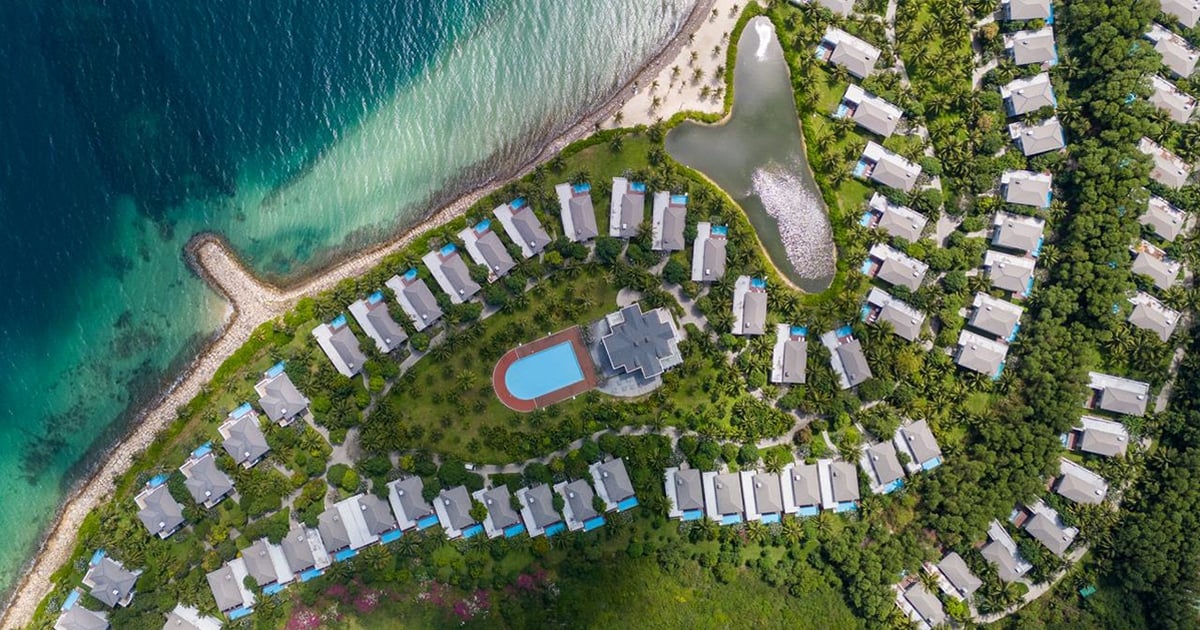












![[Photo] Welcoming ceremony for Chinese Defense Minister and delegation for friendship exchange](https://vstatic.vietnam.vn/vietnam/resource/IMAGE/2025/4/17/fadd533046594e5cacbb28de4c4d5655)



























![[Video] Viettel officially puts into operation the largest submarine optical cable line in Vietnam](https://vstatic.vietnam.vn/vietnam/resource/IMAGE/2025/4/17/f19008c6010c4a538cc422cb791ca0a1)














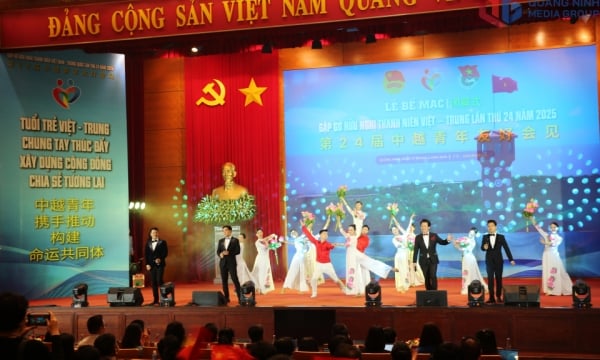

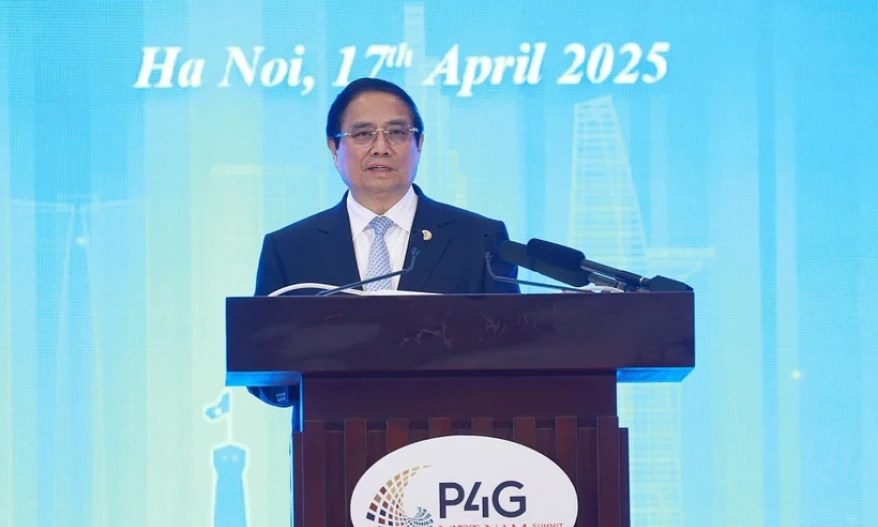





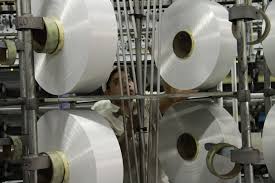












Comment (0)